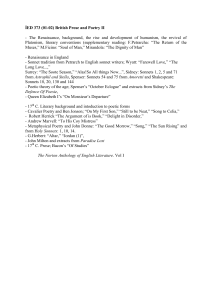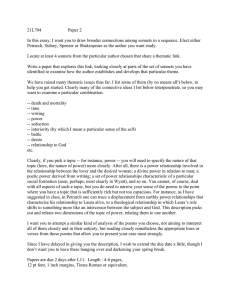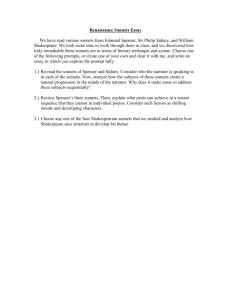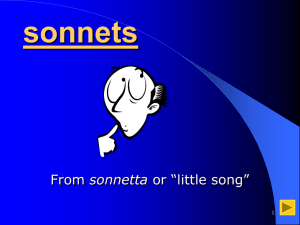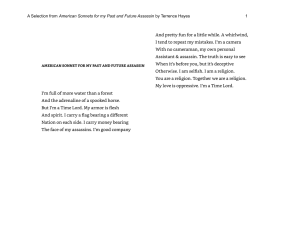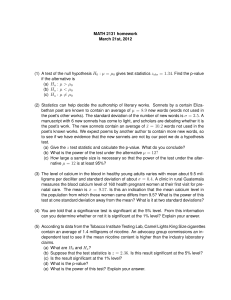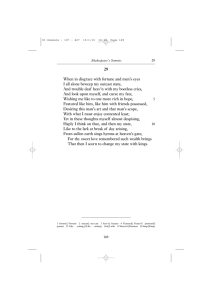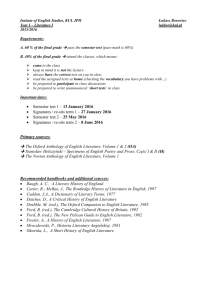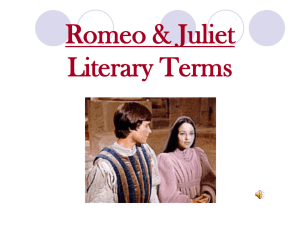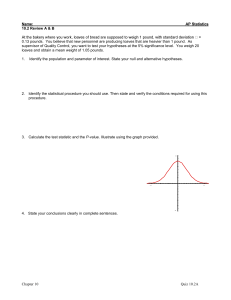Honors Humanities Summer Assignment 2014-2015
advertisement
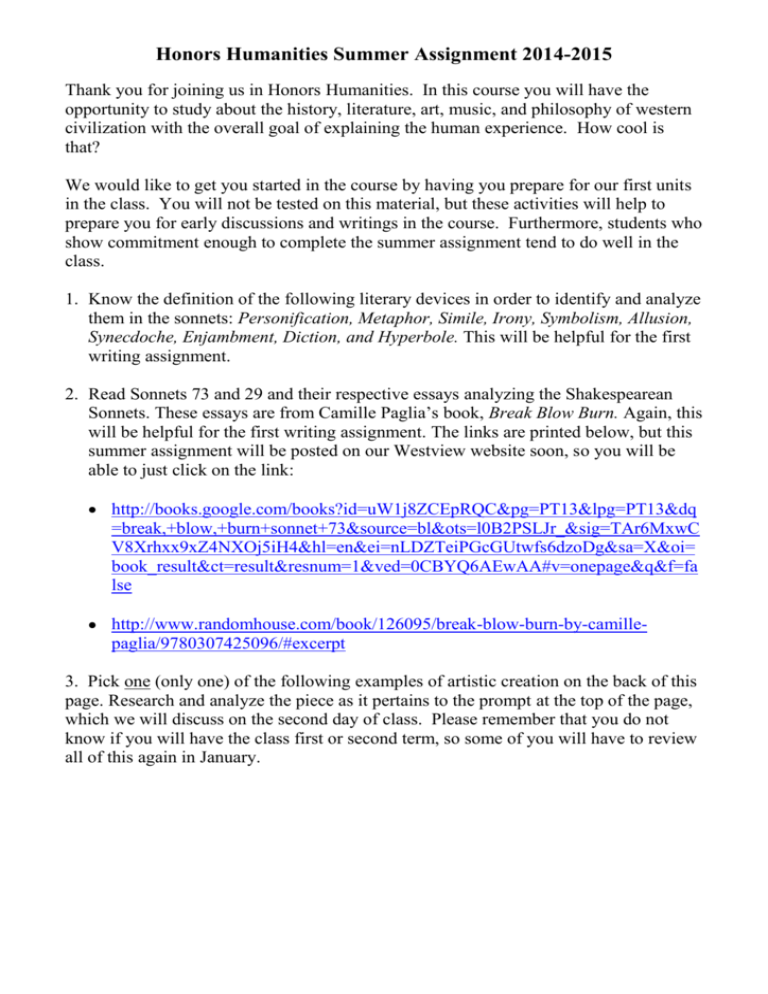
Honors Humanities Summer Assignment 2014-2015 Thank you for joining us in Honors Humanities. In this course you will have the opportunity to study about the history, literature, art, music, and philosophy of western civilization with the overall goal of explaining the human experience. How cool is that? We would like to get you started in the course by having you prepare for our first units in the class. You will not be tested on this material, but these activities will help to prepare you for early discussions and writings in the course. Furthermore, students who show commitment enough to complete the summer assignment tend to do well in the class. 1. Know the definition of the following literary devices in order to identify and analyze them in the sonnets: Personification, Metaphor, Simile, Irony, Symbolism, Allusion, Synecdoche, Enjambment, Diction, and Hyperbole. This will be helpful for the first writing assignment. 2. Read Sonnets 73 and 29 and their respective essays analyzing the Shakespearean Sonnets. These essays are from Camille Paglia’s book, Break Blow Burn. Again, this will be helpful for the first writing assignment. The links are printed below, but this summer assignment will be posted on our Westview website soon, so you will be able to just click on the link: http://books.google.com/books?id=uW1j8ZCEpRQC&pg=PT13&lpg=PT13&dq =break,+blow,+burn+sonnet+73&source=bl&ots=l0B2PSLJr_&sig=TAr6MxwC V8Xrhxx9xZ4NXOj5iH4&hl=en&ei=nLDZTeiPGcGUtwfs6dzoDg&sa=X&oi= book_result&ct=result&resnum=1&ved=0CBYQ6AEwAA#v=onepage&q&f=fa lse http://www.randomhouse.com/book/126095/break-blow-burn-by-camillepaglia/9780307425096/#excerpt 3. Pick one (only one) of the following examples of artistic creation on the back of this page. Research and analyze the piece as it pertains to the prompt at the top of the page, which we will discuss on the second day of class. Please remember that you do not know if you will have the class first or second term, so some of you will have to review all of this again in January. Discussion prompt: How does art impact us as humans? How does your particular piece of chosen art add to this universal impact? What can we learn about life from art? Keep in mind that “art” means more than just paintings and sculptures; it is anything created for an audience. Be ready to discuss your findings on day two of class. Pick one (and only one) of the following topics: A.E. Housman--To an Athlete Dying Young Aaron Copland--Fanfare for the Common Man Auguste Rodin – Gates of Hell Basho--Selected poems Bob Dylan--Blowing in the Wind Bruegel the Elder – The Triumph of Death Caspar David Friedrich – Cloister Graveyard in the Snow Don McLean--American Pie Edward Hopper – Nighthawks Eric Whitacre--Sleep Francisco Goya—The Third of May 1808 Franz Marc – Fate of the Animals Geoffrey Chaucer--Prologue to Canterbury Tales Grandmaster Flash--The Message Hector Berlioz--Symphonie fantastique Henry David Thoreau--Conscience Ipod print ads Jack Kirby--Captain America #1 (1941) Jimmy Santiago Baca--El Gato John Keats--Ode on a Grecian Urn John Newton--Amazing Grace Jorn Utzon -- Sydney Opera House Kathe Kollwitz – Woman with Dead Child 1903 Langston Hughes--I, too, sing America Ludwig von Beethoven--Symphony 5 Magdalena Abakanowicz – Backs Maya Lin --Vietnam Veterans Memorial Nirvana--Smells Like Teen Spirit Opening ceremonies 2008 Olympics Pablo Picasso -- Guernica Pyotr Tchaikovsky--1812 Overture Radio Broadcast (Welles)--War of the Worlds Rene Magritte – La Condition Humaine (The Human Condition) Samuel Taylor Coleridge--Rime of the Ancient Mariner Sandro Boticelli – La Primavera Sergei Eisenstein--Battleship Potemkin (Film) Shane Koyczan--To This Day Wassily Kandinsky – Improvisation 28 When the Saints Go Marching In—traditional Wilfred Owen--Dulce et decorum est William Blake--The Chimney Sweeper (both) *Please note: some of these pieces deal with mature themes or language.
